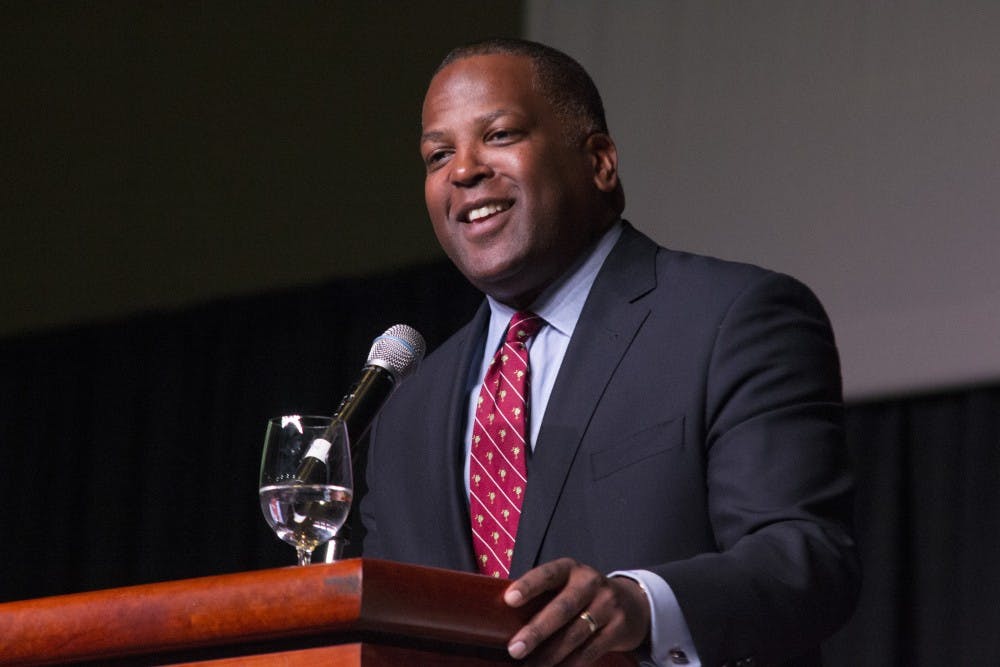Downtown development, safety, recycling among key points
After a year of lower unemployment rates, an improved credit rating and a decrease in violent crimes, Columbia Mayor Steve Benjamin said he still isn’t satisfied.
In the annual State of the City address Tuesday night, Benjamin laid out the agenda for his next year in office: pushing downtown skyscraper development, planning a sustainable waste recycling center, the passage of bond reform legislation and the construction of a baseball stadium that would be home to a minor league team.
“So when you ask me ‘What’s happening in Columbia?’ I say ‘A lot,’” he said. “You ask, ‘What is the state of our city?’ and I say ‘We shine.’”
Columbia’s tendency to “shine” was a common theme throughout the speech, but Benjamin made it clear that he thought there was plenty of room for improvement.
“You see, as proud as I am — as we all are — of our wide range of accomplishments, we have only just begun to scratch the surface of our potential … only just begun to truly shine,” he said.
Building the city upward instead of outward could bring increased tax revenue to Columbia, while making the city more desirable to investors, Benjamin said.
Meanwhile, an initiative to construct a recycling center that would produce fertilizer, natural gas and electricity from sewage would create a partnership between the city and the private sector. Not only would tons of sewer sludge be recycled instead of buried in landfills, but taxpayers would be spared tens of millions of dollars, he said.
And although violent crime has seen a 24 percent decrease since 2010, Benjamin said more can be done and bigger action can be taken, especially after nine homicides in Columbia over the last year.
“It’s not enough,” he said. “Not when you can do more.”
Legislation regarding bond reform has long been in the works, and Benjamin promised to push the City Council to accept each resolution, which would then require passage by the state legislature.
Additionally, a pedestrian district in Five Points, a parking and transportation plan designed for the area and monthly meetings between the city and local business owners would bridge the gap between the government and community, he said.
“This isn’t a game,” he said. “People are dying, and it’s time to stand up and take action. This is a community problem and requires a community solution.”
Columbia’s opportunity to improve as a community, Benjamin said, is through the baseball stadium planned for downtown.
Through the development, 1,600 jobs would be created and $18.5 million in tax revenues would come in annually. However, the stadium alone would cost the city about $35 million; to afford the stadium and the surrounding infrastructure commitments, the city is considering taking on debt.
But Benjamin was not discouraged by numbers. Instead, he said he plans to move past the critics and naysayers and make the improvements he feels Columbia needs most.
“We choose instead to believe. We choose to dream big and act boldly,” he said. “We choose to shine.”

